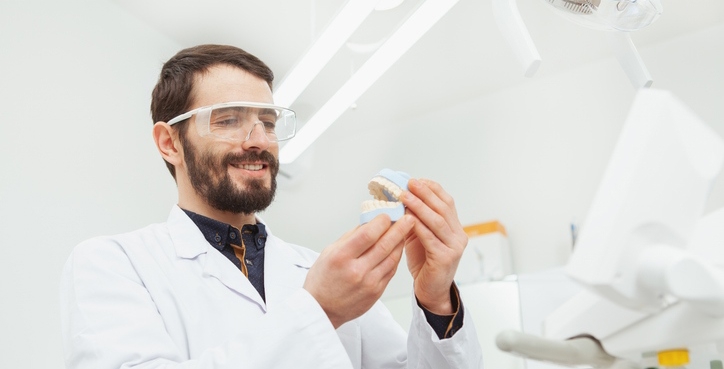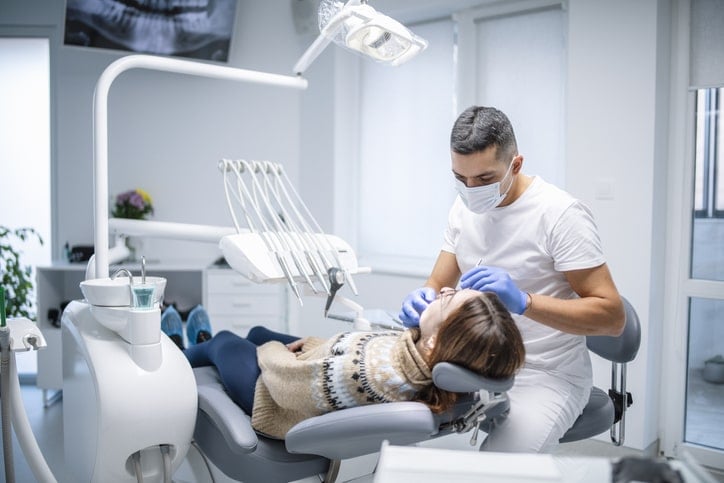
Revolutionizing Dentistry with 3D Printing: Applications and Best Practices
Welcome to the future of dentistry! In an era where technology is reshaping industries left and right, 3D printing is emerging as a game-changer for dental professionals. Whether you're a pediatric dentist, a general physician, or a seasoned dentist, understanding how to implement 3D printing in your practice can elevate your patient care and operational efficiency.
This blog will guide you through the various applications of 3D printing in dentistry and share best practices to help you seamlessly integrate this technology into your workflow.
How Does 3D Printing Support Your Dentistry Practice?
3D printing, also known as additive manufacturing, involves creating three-dimensional objects layer by layer from a digital file. In dentistry, this technology allows for the precise fabrication of dental appliances, models, and even prosthetics. The materials used range from resins to metals, each selected for their specific properties and applications.
The Advantages of 3D Printing in Dentistry
The benefits of 3D printing are numerous, making it a valuable asset for any dental practice. First, it significantly reduces the time required to produce dental appliances, allowing for same-day service in many cases.
Secondly, it offers unparalleled precision, ensuring that appliances fit perfectly and function optimally. Lastly, 3D printing is cost-effective, reducing the need for multiple fittings and adjustments.
How 3D Printing Enhances Patient Care
Imagine being able to offer your patients quicker, more accurate, and less invasive treatments. With 3D printing, this is entirely possible. Custom dental appliances can be produced in a fraction of the time it would take using traditional methods. This not only improves patient satisfaction but also enhances the overall quality of care.
Applications in Orthodontics
Orthodontics is one of the areas where 3D printing has made a profound impact. From creating custom braces to producing clear aligners, the precision offered by 3D printing ensures better patient outcomes. The ability to quickly produce and adjust appliances means that treatment plans can be more flexible and responsive to patient needs.
Applications in Prosthodontics
Prosthodontics, which deals with dental prostheses, has also benefited immensely from 3D printing. Dentures, crowns, and bridges can be custom-designed and fabricated with high precision. This not only ensures a better fit but also significantly reduces the turnaround time, allowing patients to receive their prostheses faster.
Surgical Guides and Implants
Surgical guides created through 3D printing allow for more precise placement of dental implants. These guides are tailored to the patient’s anatomy, reducing the risk of complications and improving the success rate of the surgery.
Additionally, 3D-printed implants made from biocompatible materials offer enhanced integration with the bone, leading to better long-term outcomes.

Pediatric Dentistry and 3D Printing
For pediatric dentists, 3D printing offers unique advantages. Custom-fit mouthguards, space maintainers, and other appliances can be produced quickly and accurately. This is particularly beneficial for young patients who may require frequent adjustments as they grow. The ability to provide these solutions in a timely manner enhances patient compliance and overall care.
Improving Diagnostic Accuracy with 3D Models
One of the most significant advantages of 3D printing in dentistry is the ability to create accurate anatomical models. These models are invaluable for diagnostic purposes, allowing dentists to better understand the complexities of a patient’s dental structure. This leads to more accurate diagnoses and more effective treatment plans.
Streamlining Workflow with Digital Dentistry
Integrating 3D printing into your practice involves more than just acquiring a printer. It requires a shift towards digital dentistry, where digital impressions and CAD software play a crucial role. This digital workflow streamlines the entire process, from diagnosis to treatment planning and execution, making your practice more efficient and effective.
Training and Education
Implementing 3D printing in your practice requires proper training and education. Many dental schools and continuing education programs now offer courses on 3D printing technology and its applications in dentistry.
Investing in these educational opportunities ensures that you and your team are well-equipped to leverage this technology to its fullest potential.
Regulatory Considerations
As with any medical technology, there are regulatory considerations to keep in mind when implementing 3D printing in your dental practice. Ensuring that your equipment and materials meet the necessary standards and regulations is crucial for maintaining patient safety and practice compliance.
Cost-Benefit Analysis
While the initial investment in 3D printing technology can be significant, the long-term benefits often outweigh the costs. Reduced labor, quicker turnaround times, and improved patient satisfaction all contribute to a positive return on investment.
Conducting a thorough cost-benefit analysis can help you make an informed decision about integrating 3D printing into your practice.
Choosing the Right 3D Printer
Not all 3D printers are created equal. Selecting the right printer for your practice depends on various factors, including the types of applications you plan to use it for, the materials you prefer, and your budget. Consulting with experts and reading reviews can help you make an informed decision.
Advance Your Locum Tenens Career with AMN Healthcare
3D printing is revolutionizing the field of dentistry, offering numerous benefits that enhance patient care and streamline practice operations. From orthodontics to prosthodontics, surgical guides, and pediatric dentistry, the applications are vast and varied.
By investing in the right equipment, training, and digital workflow, you can leverage this technology to transform your practice. Don't miss out on the opportunity to stay ahead in the rapidly evolving dental industry. Explore more about integrating 3D printing into your practice and start reaping the benefits today.
AMN Healthcare offers personalized locum tenens solutions to support your dental career. Locum tenens jobs provide more scheduling freedom with temporary positions, allowing you to support a healthy work-life balance with a rut free lifestyle.
Whether right out of training, mid-career, or beyond, this path is increasingly popular among healthcare professionals. Partnering with AMN Healthcare will deliver the flexibility and support you need to navigate your career, giving you the unmatched freedom to choose from a vast network of nationwide locum tenens opportunities that match your unique goals, regardless of level or specialty.



